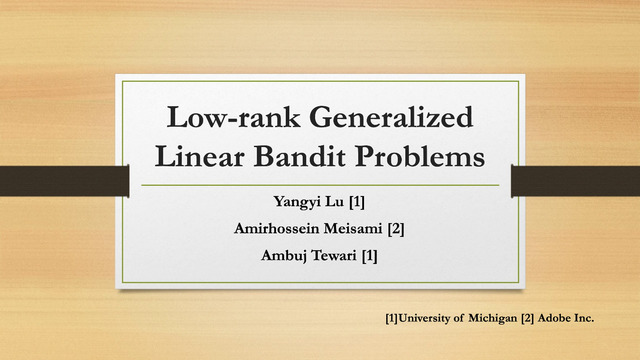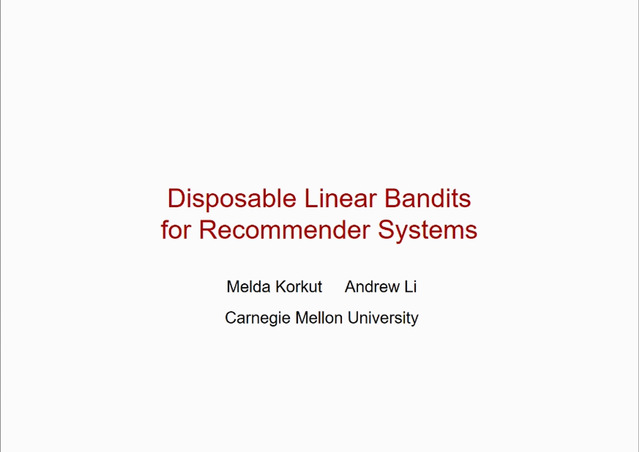Abstract:
We consider a best arm identification (BAI) problem for stochastic bandits with adversarial corruptions in the fixed-budget setting of T steps. We design a novel randomized algorithm, Probabilistic Sequential Shrinking(u) (PSS(u)), which is agnostic to the amount of corruptions. When the amount of corruptions per step (CPS) is below a threshold, PSS(u) identifies the best arm or item with probability tending to 1 as T→∞. Otherwise, the optimality gap of the identified item degrades gracefully with the CPS.We argue that such a bifurcation is necessary. In PSS(u), the parameter u serves to balance between the optimality gap and success probability. The injection of randomization is shown to be essential to mitigate the impact of corruptions. To demonstrate this, we design two attack strategies that are applicable to any algorithm. We apply one of them to a deterministic analogue of PSS(u) known as Successive Halving (SH) by Karnin et al. (2013). The attack strategy results in a high failure probability for SH, but PSS(u) remains robust. In the absence of corruptions, PSS(2)'s performance guarantee matches SH's. We show that when the CPS is sufficiently large, no algorithm can achieve a BAI probability tending to 1 as T→∞. Numerical experiments corroborate our theoretical findings.









































